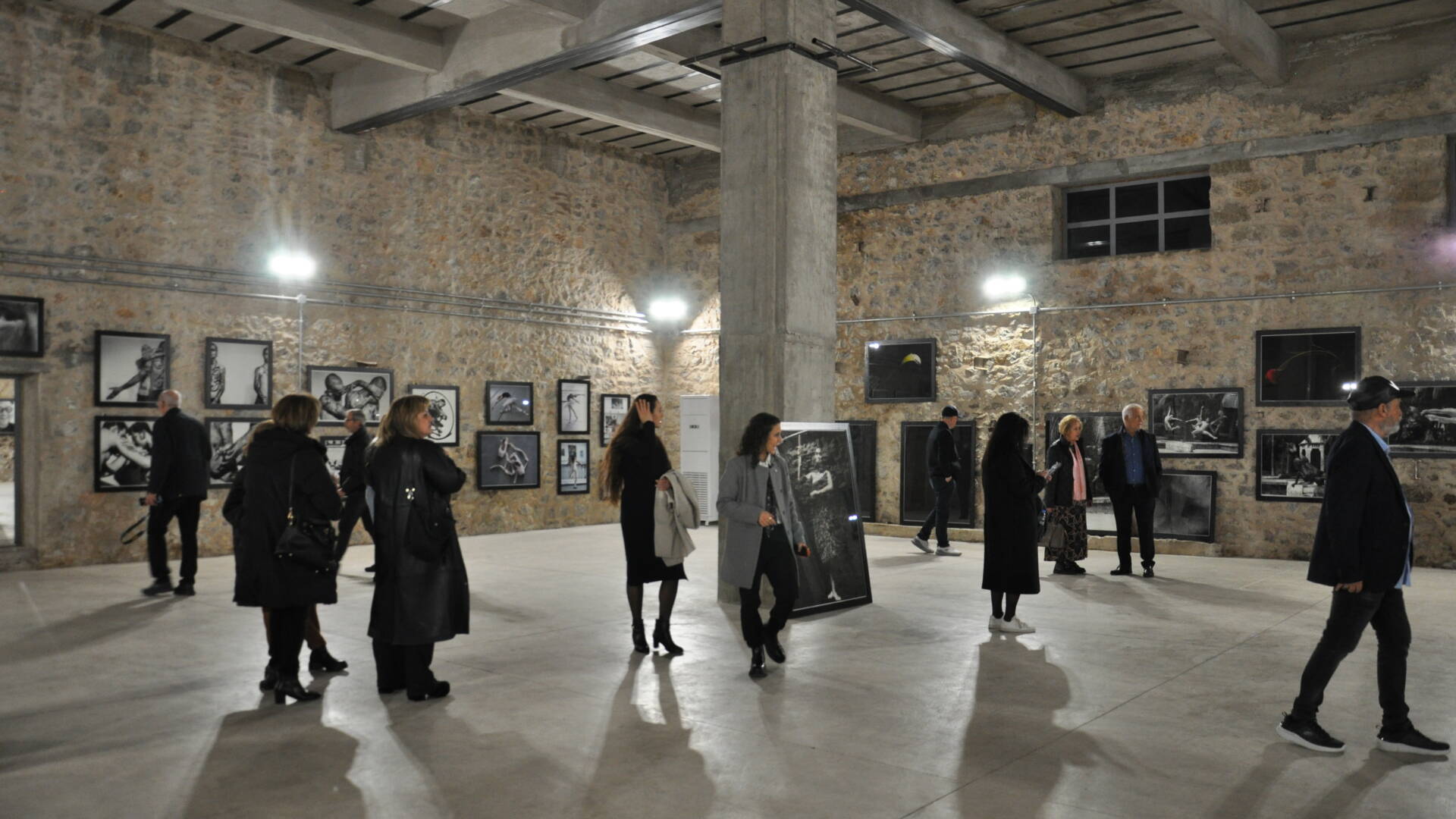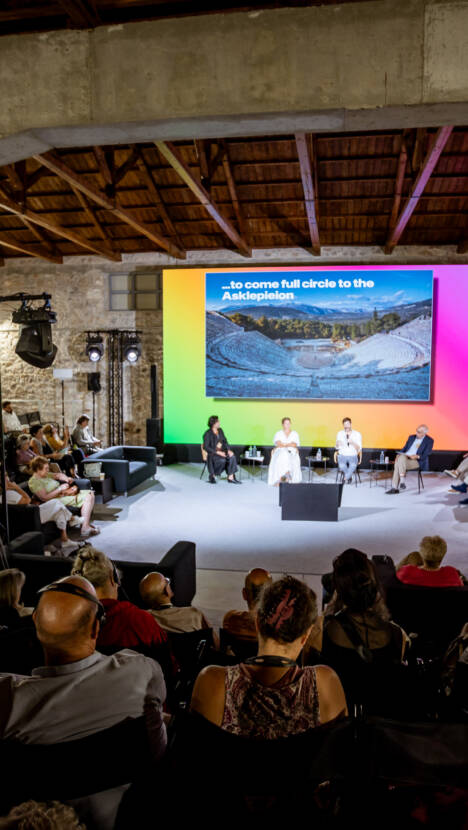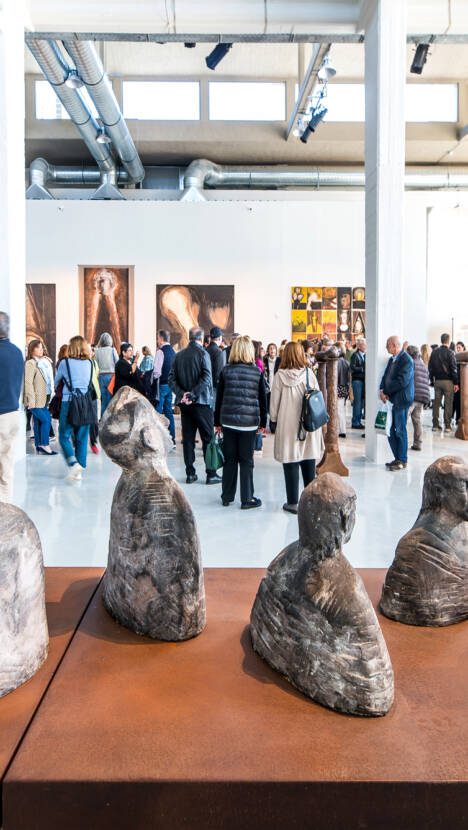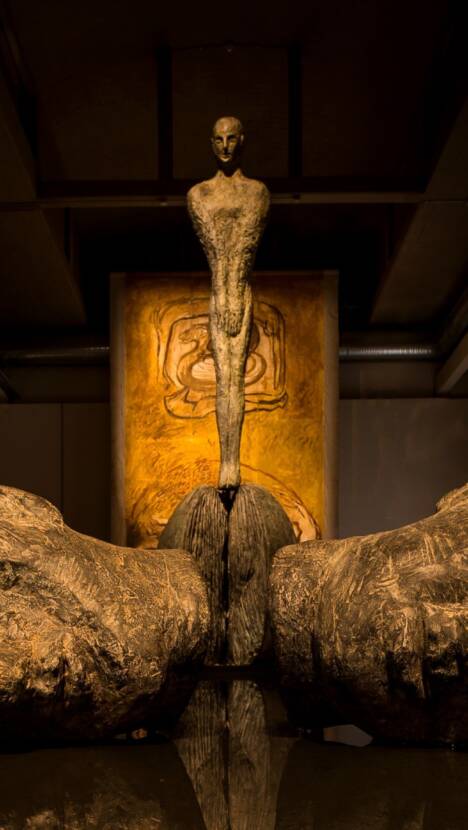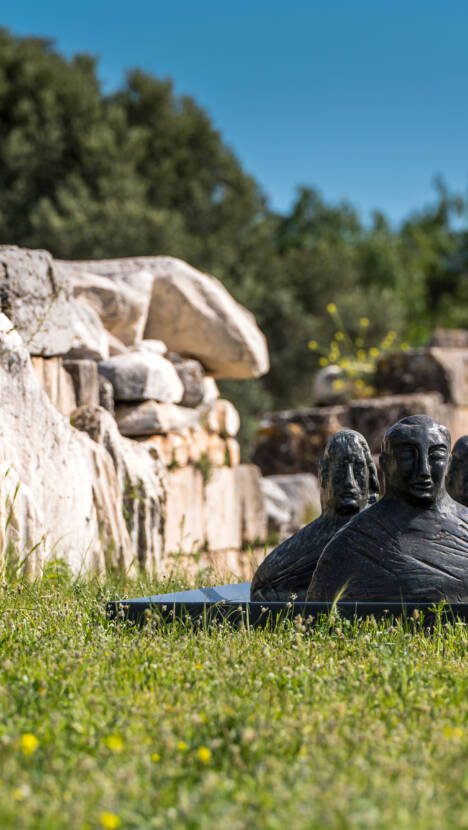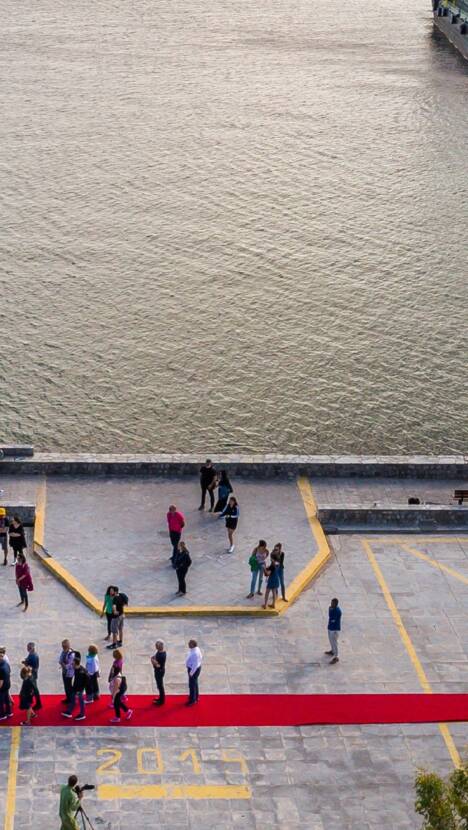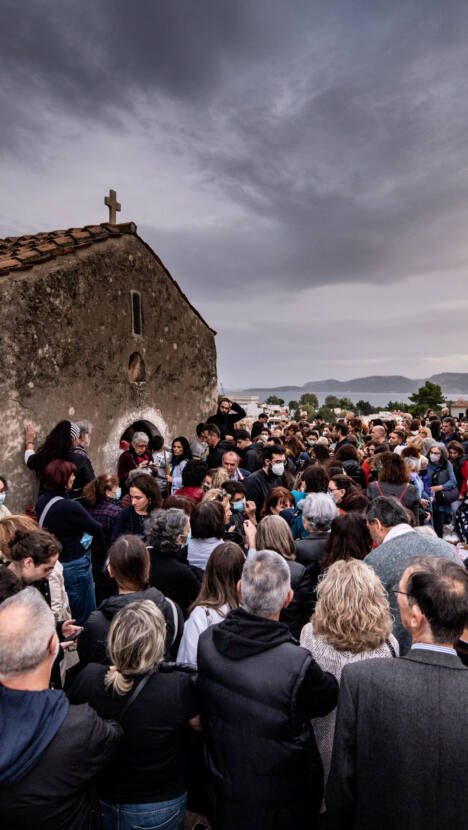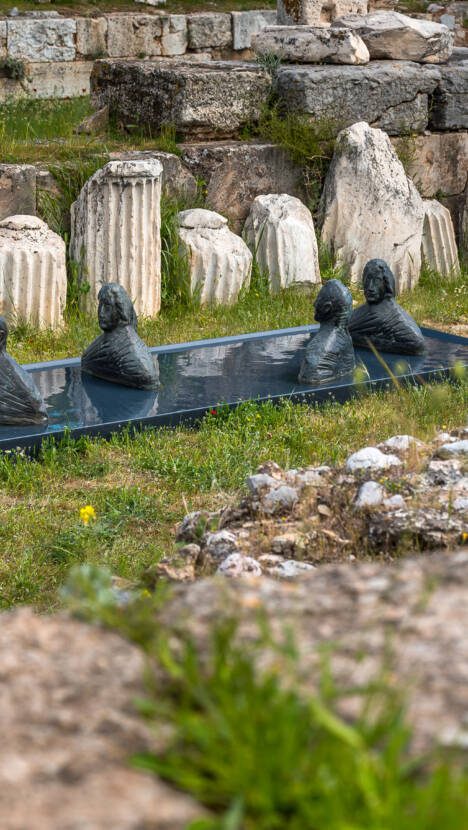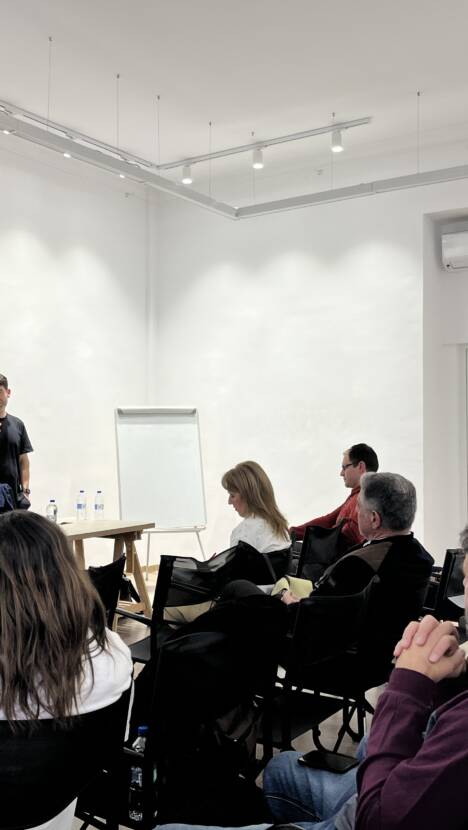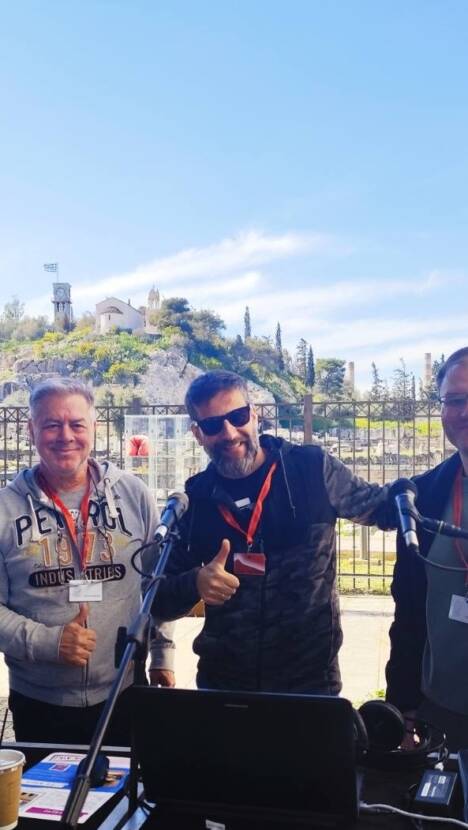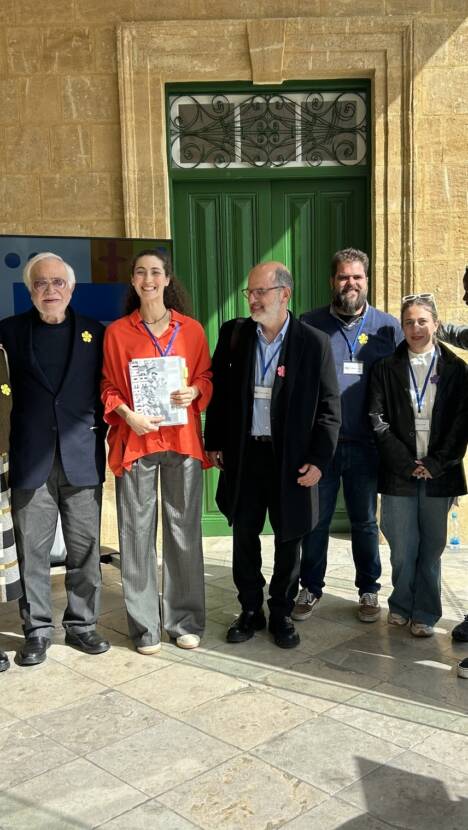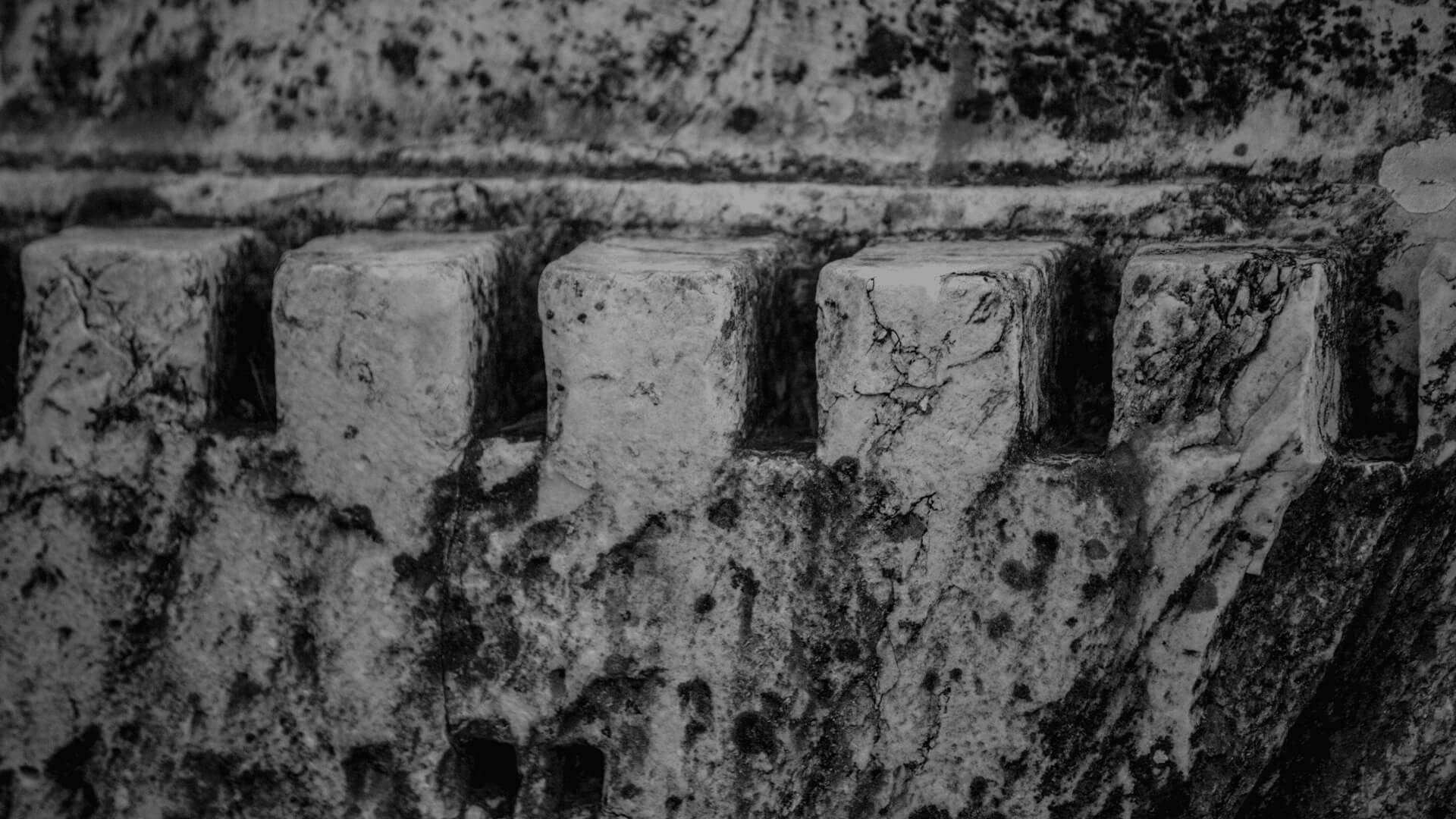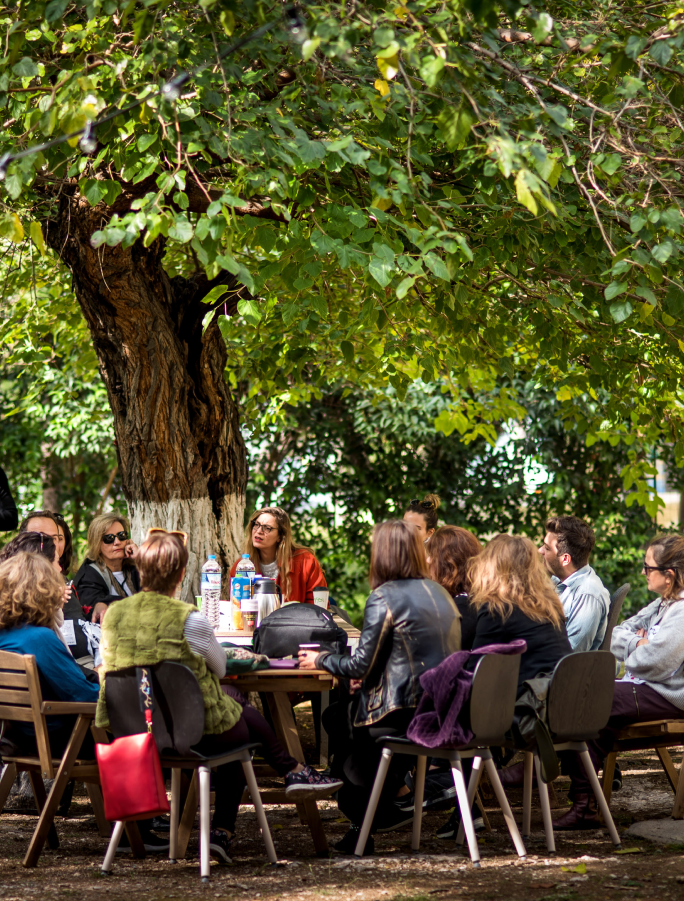Eleusis 2023 European Capital of Culture and the Aeschylia Festival present the Greek premiere of the “OMMA” performance, by the internationally renowned choreographer, Josef Nadj, on September 15 & 16, at the Old Olive Mill Open Theater in Elefsina.
Breathing, voices, silence and intoxicating jazz rhythms compose the eerie atmosphere of “OMMA,” guiding the audience through a journey of self-knowledge, as primal as the very nature of dance itself. For Josef Nadj, it is essential that the performance is about bodies and movement, retaining only what is necessary. This principle of simplicity extends to all elements that make up “OMMA.” On the bare stage, the bodies of eight dances, the sound and the lighting are enough to offer the audience a breathtaking experience.
The title of the performance comes from the ancient Greek word “omma” (ὄμμα) and explores something very essential: the ability to watch, through the sense of sight, and everything that happens during the deeper introspection of the self. In an empty space that is both infinite and finite, eight men dance together, representing a kind of humanity. Each one carries his own universe, and the composition of the movements creates a cosmogony that narrates the beginning of creation.
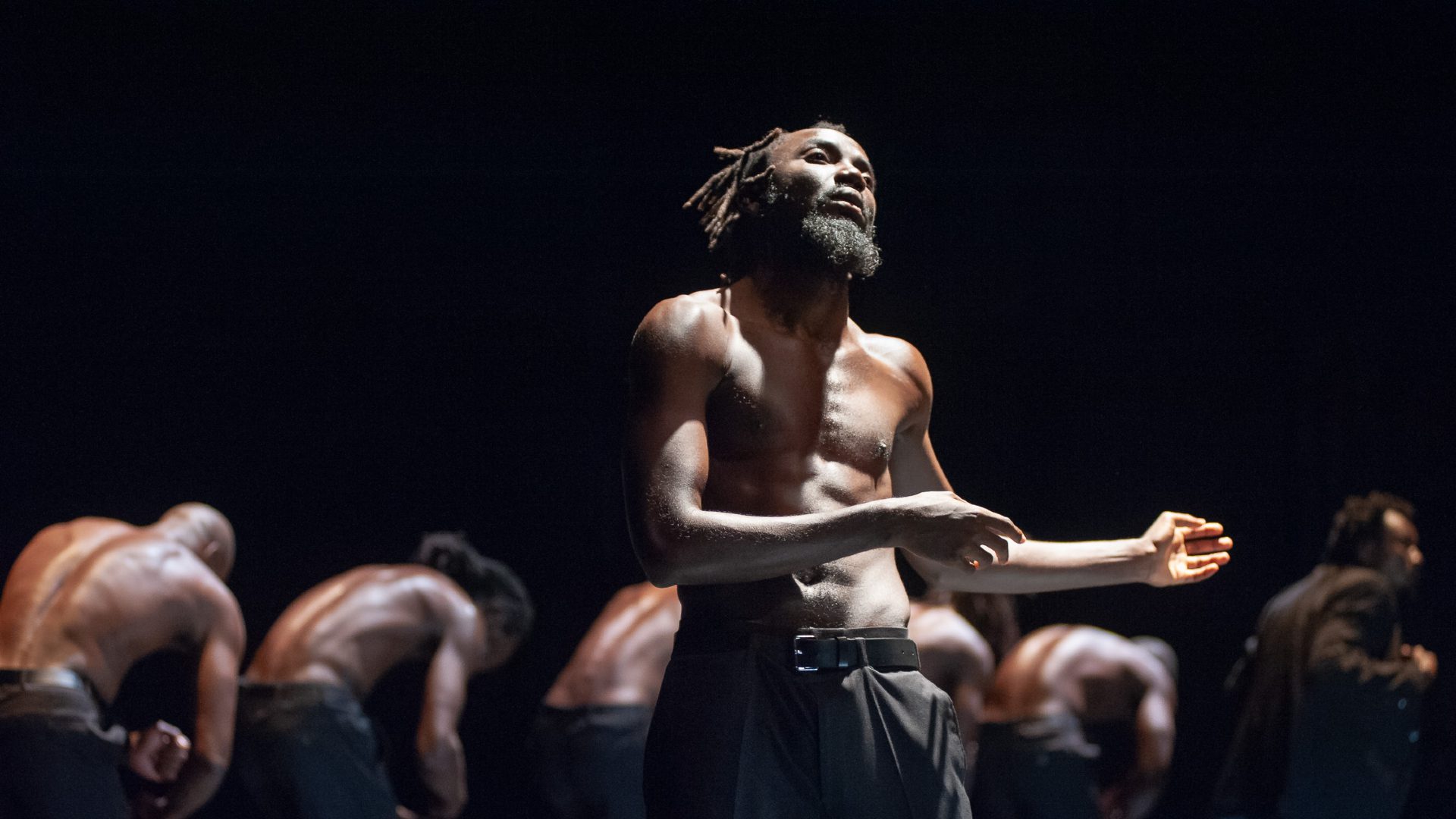
Eight dancers take to the stage, wearing suit jackets and black trousers, as a reference to the timeless silhouette of Josef Nadj. By lending them his attire, the award-winning choreographer challenges each dancer to not follow in his footsteps, but to reveal their own uniqueness.
In OMMA, Nadj brings together a group of dancers from Mali, Senegal, Côte d’Ivoire, Burkina Faso, Congo-Brazzaville and the Democratic Republic of the Congo, creating a project with influences from various artistic movements, cultures and human stories. Together they form a single body. A multi-cell organism, through which each of them reveals his own language, his own identity, his own dance: a fascinating feedback loop between the group and the individual is born, inevitably guiding us to man as a universal being.
Can a performance be called organic? OMMA undoubtedly returns to the roots of dance, with movement as its substance and the universe as its horizon. In other words, OMMA is a search for the origins of dance, seeking to prove Josef Nadj’s hypothesis that dance was born along with humanity. If this is so, does not returning to the source of dance and movement equate to returning to the origin of the universe? With this in mind, the choreographer shapes the raw materials provided by his dancers and constructs—along with them and their body—a dance that is common, multidimensional and universal.
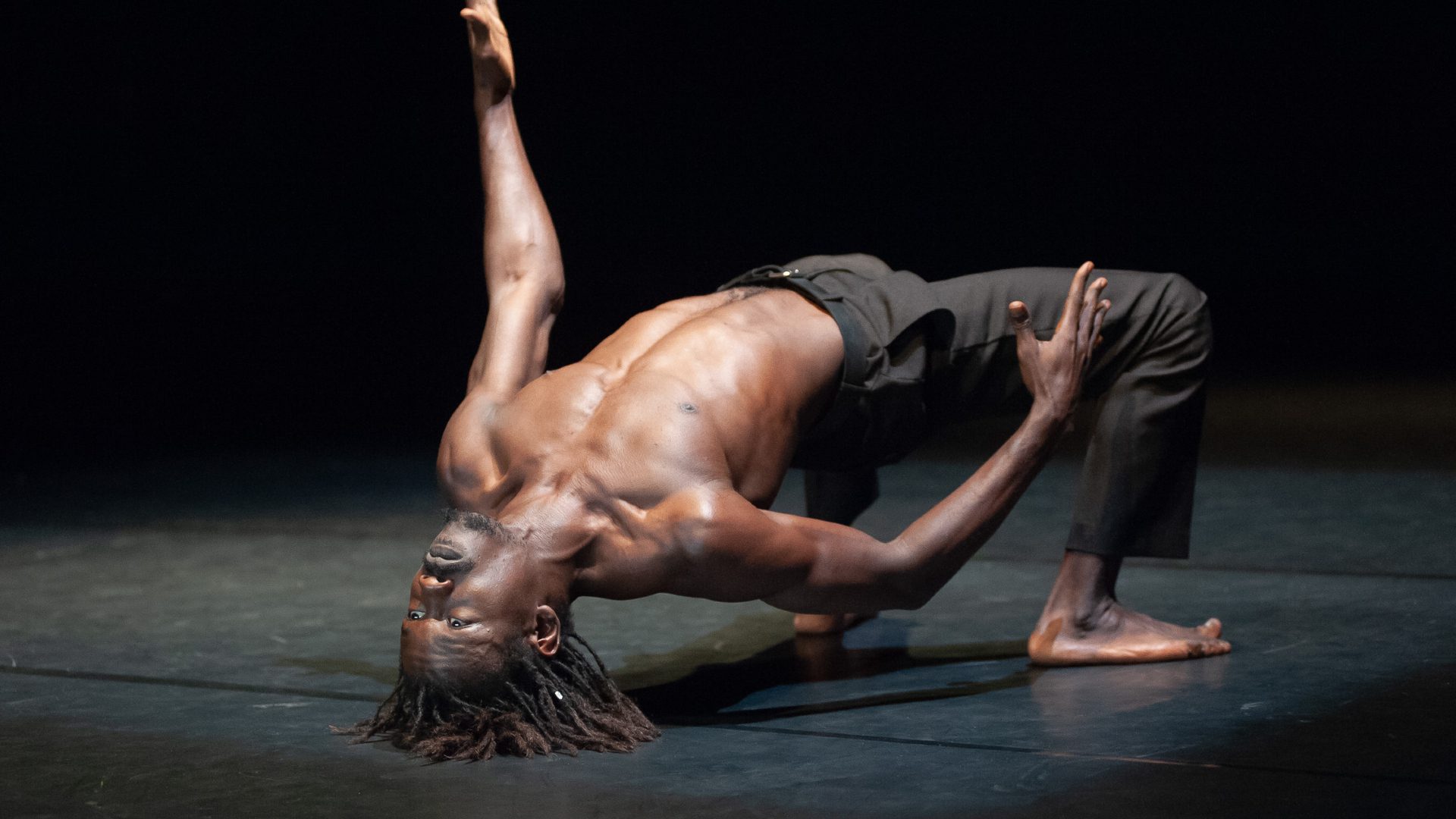
Nadj takes his dancers on a journey to the roots of dance, where the balance of the universe is revealed. Reflecting the cycle of life, OMMA explores something essential: our ability to see what lies ahead, so that we may better see what lies deep within us, in a common destiny. This way, the ancient Greek meaning of the word OMMA acquires a new meaning: “eye” but also “that which sees or looks.” Therein lies an invitation to keep our senses alert, so that we may better understand this dance, dedicated to the genesis of humanity.


